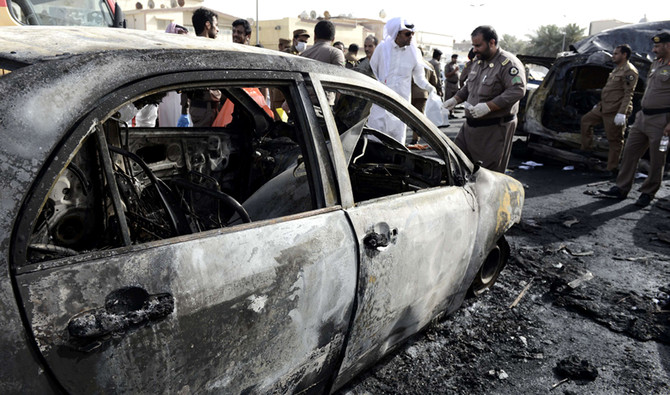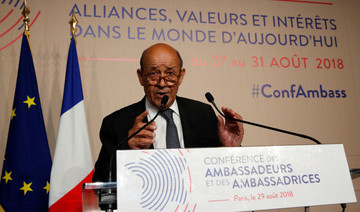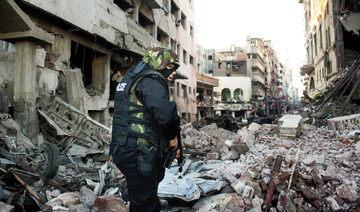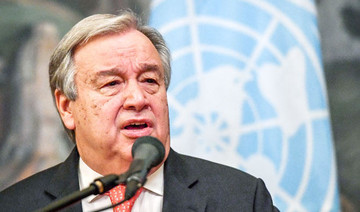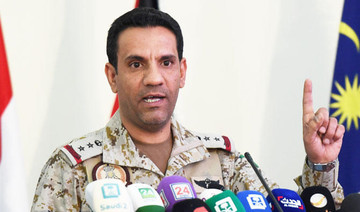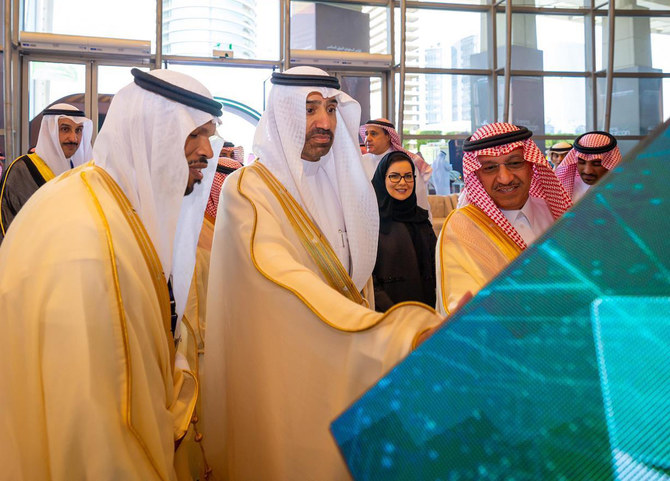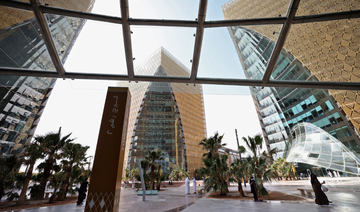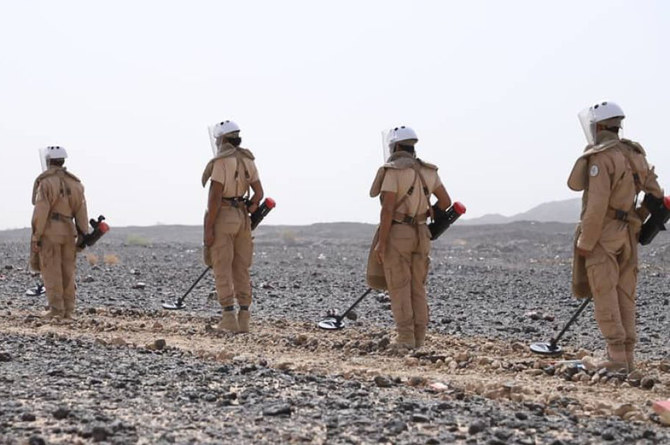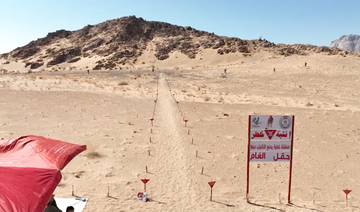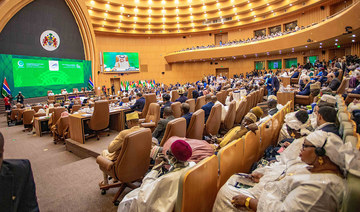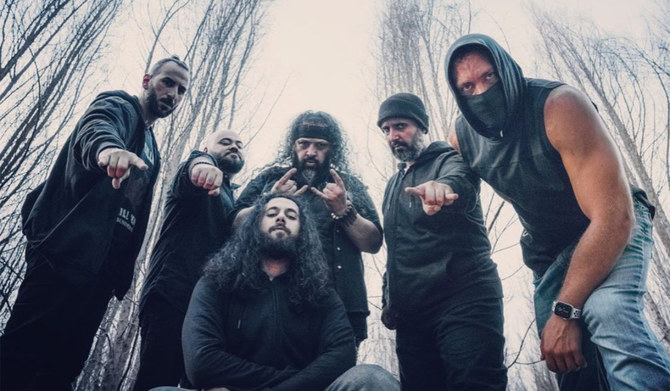DUBAI: Governments around the world need a coherent, global strategy to uproot the ideology of violent extremism, former British prime minister Tony Blair says. In Saudi Arabia and the UAE, they already knew that — and have been acting on it for years.
Organizations such as the Saudi-based Ideological Warfare Center and Muslim World League, and Hedayah and the Sawab Center in the UAE, are classic examples of the “prevention is better than cure” methods that Blair calls for on Thursday in a report by his Institute for Global Change.
“Extremism is a global challenge prevalent now in both developing and developed states, so the discourse has to be beyond fragile states only,” said Hassan Abbas, professor of international security studies at the National Defense University in Washington. “Enabling civil society workers to promote coexistence is a much-needed agenda item as it will lead to local capacity-building as well as acknowledgement of good work already being done — rather than misguided attempts to reinvent the wheel.”
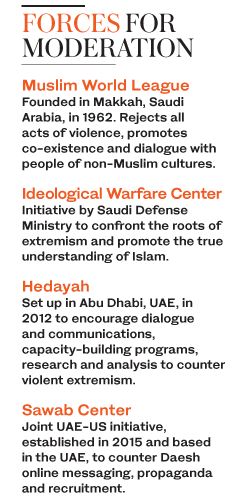
The Ideological Warfare Center, founded by the Saudi Ministry of Defense, “has been concentrating on educating people and raising awareness about extremism and fundamentalism through cutting-edge visual tools,” said Dr Majid Rafizadeh, Iranian-American pol- itical scientist, president of the International American Council and board member of the Harvard International Review. “The UAE and Saudi Arabia have been leading states in using soft power, security, setting up public and private institutions that raise awareness about extremist ideologies, initiating dialogues between different societies, as well as taking regional and global initiatives to uproot terrorism and extremist ideologies.”
Such a complex approach is challenging because of the difficulty of coordination between various inter-governmental and intra-governmental organizations, he said. “Nevertheless, in the long term, this is the most effective strategy to uproot extremist ideology and terrorism.”
READ MORE
Understanding extremist ideologies crucial to fight against terror
Dr. Anne Speckhard, director of the International Center for the Study of Violent Extremism, said such efforts are crucial to prevent violent extremism. “Saudi Arabia has for years been counter-messaging and working on ways to disengage and deradicalize imprisoned violent extremists,” said Dr Speckhard, who has more than 20 years’ experience interviewing 600 terrorists, their family members, hostages and close associates. “When countries work together on these points, we can all win. If governments fail, terrorists win.”
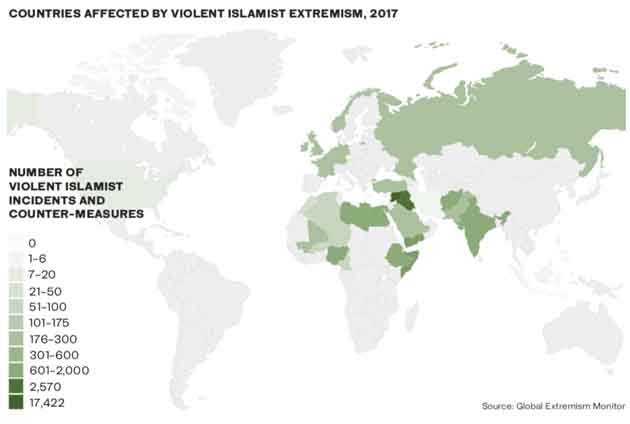
However, criticism of the Blair approach came from Dr. Abdulkhaleq Abdulla, chairman of the Arab Council for Social Sciences. “It puts the blame on Arab Muslim countries for extremist ideologies in our region,” he said. “What it neglects is the important historical facts that Al-Qaeda was born from the reaction to the Soviet invasion of Afghanistan and Daesh is a result of a US invasion of Iraq.”
Terrorism was rooted in foreign invasions of Muslim countries, he said. “The reasons are political, not ideological or religious. The argument from the West is apologetic on one hand, but also shifting the blame where it shouldn’t be.”
He said the Gulf had already done more than Blair recommended. “Saudi Arabia and the UAE are strict when it comes to financing, and regulation is tight. There is zero tolerance for extremism, we have done the most we can do.”
For Dr. Richard Burchill, director of research and engagement at Trends Research and Advisory in Abu Dhabi, overcoming extremist ideologies requires a focus on education at all levels of individual development, to build and support critical thinking skills, tolerance and empathy. “As acts of violent extremism decline, we should not assume the situation is improving,” he said. “It is imperative to address the ideologies that support extremist positions, both violent and non-violent. Extremist ideologies damage societies by creating differences and discrimination, fostering feelings of distrust and grievance. Security policies are important for addressing extremism, but also important is addressing the ideas behind the extremists.”
 Critics say that the Blair approach contains little new thinking. “Since 9/11, scholars and policy wonks have been thinking along the lines of prevention before cure,” said Dr Albadr Al-Shateri, politics professor at the National Defence College in Abu Dhabi.
Critics say that the Blair approach contains little new thinking. “Since 9/11, scholars and policy wonks have been thinking along the lines of prevention before cure,” said Dr Albadr Al-Shateri, politics professor at the National Defence College in Abu Dhabi.
“There is a greater chance with the Arab Gulf states, who have a genuine interest in combating extremism and terrorism. The UAE spearheads the region in this field as it plays host to organizations such as Hedayah and the Sawab Center. It is also the sponsor of the Muslim Council of Elders and the Forum for Promoting peace in Muslim Society.”
Encouraging civic society movements that are intent on promoting co-existence would be key, and a new strategy could lend support to such organizations and reinvigorate them to prevent counter-extremism fatigue, he said.
“How to generate financial and political resources in hard economic times will remain a challenge. The lack of political progress on the Palestinian problem will be another challenge, especially since Western powers are inept at restraining Israeli excesses.”


